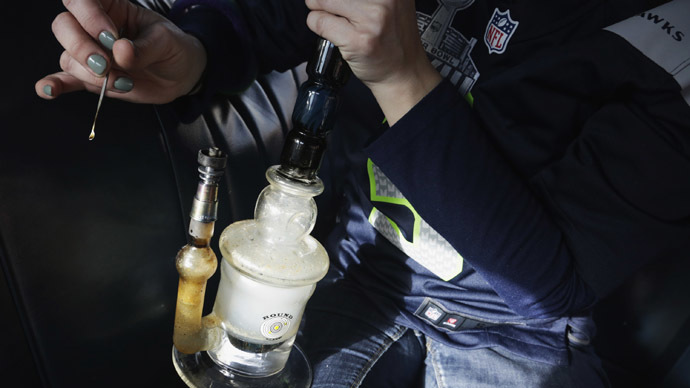Nationalists want compulsory drug tests for Russian schoolchildren

A Liberal Democratic Party MP has drafted a bill allowing school authorities and police to test children for the use of illegal drugs without parental consent.
The proposal would mean the police and teachers could order any schoolchild aged over 15 to undergo medical tests if they find his or her behavior strange and suspect the use of illegal drugs. Tests on younger children would still need the agreement of parents or a guardian.
If the bill is passed parents and guardians would be only told once the testing is complete. However, placing a child into rehab on doctor’s orders would still require parental consent.
The main sponsor of the motion – MP Irina Chirkova of the Lower House Committee for Women, Family and Children says it would increase the effectiveness of the government campaign against drug addiction.
However, the police have already expressed doubts over the new initiative. Interior Ministry spokesman Andrey Pilipchuk told Kommersant daily he considered it impossible to deal with teenagers without parents being involved. He added that he did not expect the bill to be passed in its current form.
In January 2014, Russia introduced testing for illegal drugs for schoolchildren and university students. The procedure is voluntary and initially consisted of two stages – an interview with a psychologist and medical examination and tests. For children under 15, consent must be given by parents. The results of all the tests will be strictly confidential.
Earlier this month, the Health Ministry updated the testing procedure. According to it the tests are done in medical institutions (and not by school doctors) and the results become part of the medical history of the patient.
The ministry issued a new comment on the rules on Friday in which it stressed that all test results would remain confidential. “The only two persons who have access to this data are the doctor who is making the test and the doctor who makes the decision on treatment if the results are positive,” Health Minister’s aide Tatyana Klimenko told Interfax.
Russian drug policy is relatively strict with lengthy prison sentences for drug production and dealing, but consumption is not criminalized. Senior drug enforcement officials have repeatedly denied the possibility of legalization, saying that currently it would inflict irreparable damage to the country.












